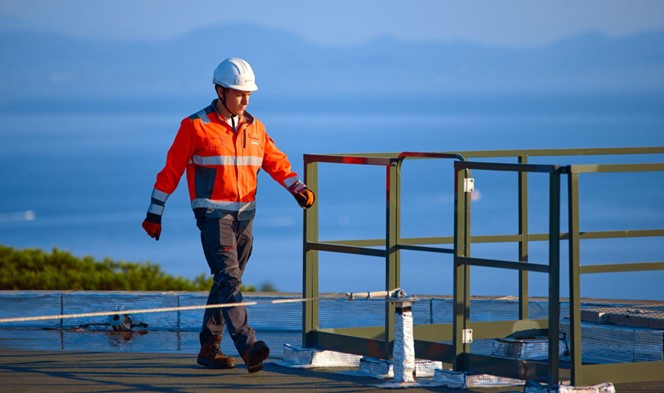
The Ministry of Defence is committed to addressing its 2050 Net Zero target. This is driven by the need to consider the impact of climate change on the future of the forces, and to ultimately make the MoD the best defence organisation in the world. Embedding these ambitions into clear sustainability plans is a key challenge for the sector. The MoD’s approach includes reducing emissions across its operations as well as in its supply chain, and adopting groundbreaking technology to continue sustainability in defence. For the MoD to continue working towards its ambitions, innovative sustainability measures need to be at the forefront to create a resilient and secure UK defence sector.
To achieve Net Zero, solutions need to be innovative, whilst also mitigating risk, complying with regulations and minimising costs. Veolia understands the defence sector’s needs, continuously delivering groundbreaking work such as the following world-first solutions.
Decommissioning nuclear-powered submarines
KDC Veolia Decommissioning Services was recently awarded a milestone recycling contract in conjunction with Babcock and the Ministry of Defence. The contract involves fully dismantling the nuclear-powered submarine, Swiftsure, based in Rosyth. This is a world-first approach, applying a new and innovative methodology which will enable around 90% of the structure and components to be reused or recycled all part of Veolia’s GreenUp strategy designed to depollute, decarbonise, and preserve resources for a more sustainable future for defence.
Decommissioning a nuclear reactor
Working with Imperial College London, Veolia helped deliver the first full decommissioning of a civil nuclear reactor site in the UK. Innovation was key to the successful decommissioning of the site, with the use of new equipment to safely deconstruct the facility. The reactor core required a bespoke design and used custom-built tools to support the dismantling.
After being operational for almost 50 years, the site housing the reactor was closed in 2012, having played a vital role in the UK nuclear research programme. Veolia’s specialist decommissioning team, KDC, initially supported the team at Imperial to plan the complex project which included the cutting operations to reduce the reactor’s concrete shielding, as well as the removal and demolition of the facility.
Restoring this space to a safe green area which can be returned to public use further highlights how Veolia is contributing to depollution and regeneration.
Innovation and sustainability go hand in hand and projects like the ones mentioned above are crucial to moving closer to Net Zero. At Veolia, we continue to be at the forefront of the newest technologies to keep the UK’s defence sector safe, compliant and sustainable.
Veolia is at DPRTE in Farnborough on the 26th and 27th March. Visit them on stand 153, visit their website or contact alun.bowen@veolia.com directly.









